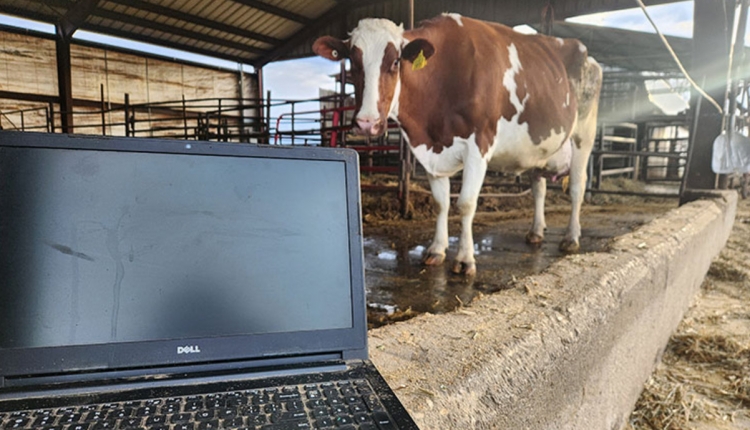While partaking in 4th of July festivities, my friend's sister-in-law discovered that I had grown up in the dairy industry. She took advantage of this opportunity to pick my brain on a variety of topics, including milk safety and animal welfare.
When situations such as these arise, we may be caught off guard or aren't prepared to answer the questions our consumers have. It is easy to explain the basics of dairy production (such as the difference between heifers and cows or that cows have to calve to make milk), but it can be trickier to wade the waters of dairy product regulations and environmental stewardship.
As producers it's our job to share our stories and help the end-buyers of dairy products understand why we chose a profession in the dairy industry. Dairycheckoff.com is an excellent resource for producers who want to tell their story and help promote and protect the image of the dairy industry.
The following communication tips from Dairy checkoff can help us provide insightful answers that reassure our consumers we are producing a product safe for them and their families to consume:

• Maintain eye contact.
• Listen for both content and intent.
• Acknowledge or repeat the question.
• Ask for clarification.
• Answer clearly, specifically, and briefly.
• Use personal stories or anecdotes to emphasize your point.
• Admit when you don't know the answer and offer to find it.
Dairy checkoff also offers three training sessions, Connect with your Community; Capture the Crowd; and Control the Question, to teach producers how to effectively share their messages with the community. Additional information about these programs can be found under Producer Resources on the checkoff website.
Telling your story is important for a variety of reasons. In doing so, you become a trustworthy source of information, make personal contacts, help your community understand dairy farming, and increase the likelihood of being included in decision-making that impacts your operation.
While we can't prepare for every situation when answering questions about dairying, the most important thing to relay to consumers is that we care. As the saying goes, "They don't care how much you know, until they know how much you care."
When situations such as these arise, we may be caught off guard or aren't prepared to answer the questions our consumers have. It is easy to explain the basics of dairy production (such as the difference between heifers and cows or that cows have to calve to make milk), but it can be trickier to wade the waters of dairy product regulations and environmental stewardship.
As producers it's our job to share our stories and help the end-buyers of dairy products understand why we chose a profession in the dairy industry. Dairycheckoff.com is an excellent resource for producers who want to tell their story and help promote and protect the image of the dairy industry.
The following communication tips from Dairy checkoff can help us provide insightful answers that reassure our consumers we are producing a product safe for them and their families to consume:

• Maintain eye contact.
• Listen for both content and intent.
• Acknowledge or repeat the question.
• Ask for clarification.
• Answer clearly, specifically, and briefly.
• Use personal stories or anecdotes to emphasize your point.
• Admit when you don't know the answer and offer to find it.
Dairy checkoff also offers three training sessions, Connect with your Community; Capture the Crowd; and Control the Question, to teach producers how to effectively share their messages with the community. Additional information about these programs can be found under Producer Resources on the checkoff website.
Telling your story is important for a variety of reasons. In doing so, you become a trustworthy source of information, make personal contacts, help your community understand dairy farming, and increase the likelihood of being included in decision-making that impacts your operation.
While we can't prepare for every situation when answering questions about dairying, the most important thing to relay to consumers is that we care. As the saying goes, "They don't care how much you know, until they know how much you care."









